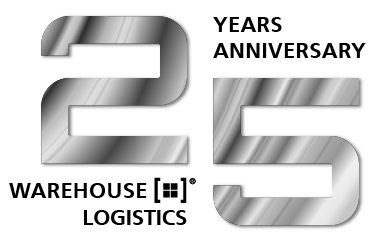News
Welcome to the cognitive era: The next stage of development in logistics
14.06.2018
Digitization and networking of logistics processes have been discussed for a while. And development is continuing: Cognitive systems are capable of learning, recognizing patterns and recommending action on that basis. This means they can support warehouse employees with decision-making and provide advance notification of events that are likely to occur.
These are capabilities which will be of benefit in particular to the logistics industry in the future. But there is still a long way to go until self-learning systems can be deployed in warehouses. Many companies have recognized that it is essential to link up processes and technologies to remain competitive and ready for the future. Implementation, however, is progressing very slowly.
The ordered items are not delivered on the next day at the latest. The desired item is not in stock. And order tracking is not available. In these cases, it is very likely that customers are not satisfied. Consumer behavior has also changed as a result of digitization. Expectations are growing, especially in e-commerce: Customers now expect same day or next day delivery, 100 percent product availability and continuous status updates as a matter of course. And these expectations are no longer limited to the private sector. Customers in B2B are also demanding this level of service.
High-performance IT as the basis
To meet the continuously growing requirements, companies have link up all the systems along the supply chain. This requires a powerful system that not only links up the individual participants, but manages them as well. A modern supply chain execution system (SES), for example, as a smart control center, transparently provides all relevant data across the entire supply chain and links that data together. A comprehensive overview and more efficient design of the underlying original processes is in fact only possible when the various pieces of data are made visible and transparent. This is what turns the value and supply chain into a value and supply network. Supply chain execution systems are already in use as tools to increase productivity and prevent errors. But they have even greater potential. An SES is, in fact, a platform for the next phase of development in logistics – cognition.
The Internet of Things becomes the Logistics of Things
By analogy with the »Internet of Things«, »Logistics of Things« has become an established terms in the logistics industry. In the past, a manageable number of hardware components were used in warehouses. Now, warehouses are overrun by vast numbers of digital gadgets. It is now common to see tablets, smartphones, scanners, pick-by-voice, pick-by-vision and even picking robots in today's warehouses. But the increasing number of technologies is also generating more data. The challenge lies in making the most of that data. What are the available options to find the relevant information in this flood of data?
Quality, not quantity
Until now, process optimizations were based on findings from past experience. In the era of cognitive logistics, the perspective is changing. The key question now is: »What is going to happen and are we ready for it?« Predictive analytics, which turns big data into smart data, provides the answer. It is no longer the quantity of data, but the quality that counts. Filtered, categorized data and additional external data, such as weather and traffic information, can be used to make predictions about situations that are likely to occur. Predictive analytics increases planning certainty, because the method identifies repeating patterns. So companies can prepare for probable scenarios early on. For example, the system identifies trending items at a certain point, it is useful to align product assignment in the warehouse to trends in order to accelerate order picking. Upcoming maintenance and potential for improvement in the material flow can also be identified in this way. This represents an important step towards cognitive logistics.
Cognitive logistics: Trend or dream?
